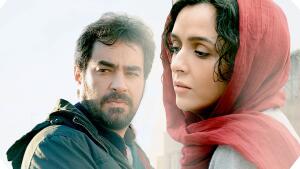The Academy Announces 87 Foreign Films Competing for Award
The Academy of Motion Picture Arts and Sciences announced the 87 films from South-east Europe and around the world that will be competing this year for the Best Foreign Language Film award. Nominations for the 91st Academy Awards will be announced on January 22, 2019. The ceremony will take place on February 24, 2019.
Below are this year’s submission from all the South-East European countries (and more!):
Belarus was the first country to announce its submission this year with Darya Zhuk’s drama Crystal Swan. Set in the 1990’s, a peripatetic young DJ is derailed by a typo in a forged US Visa application, forcing her to a backwater village where she is determined to fake her way to the American dream. This will mark the third Belarusian submission so far.
Bosnia and Herzegovina has selected the drama Never Leave Me directed by Aida Begić. This co-production with Turkey tells the story of three displaced Syrian boys living a difficult life as refugees in the magical, mythical Turkish city of Sanliurfa. Searching for recovery from a traumatic past, the children cross the path from destructiveness and hostility to meaningful existence and love. Bosnia won this category in 2001 with Danis Tanović’s No Man’s Land.
Bulgaria has chosen Ilian Djevelekov’s Omnipresent. The film’s protagonist is Emil, a writer and owner of an advertising agency who gradually becomes obsessed with spying on his family, friends and employees with hidden cameras. In October 2017, this feature triumphed at Bulgaria’s Golden Rose film festival, winning Best Film, Best Actor and Actress, as well as the Audience Award categories. In 2009, Stephan Komandarev’s The World is Big and Salvation Lurks Around the Corner made the shortlist but was not nominated.
Croatia will be represented by Ivan Salaj’s political comedy drama The Eighth Commissioner. It tells the story of an ambitious politician caught in a scandal and exiled to a remote island to keep him out of the public eye. There, he is tasked with organizing local elections – something his seven predecessors have failed to accomplish… Croatia has never been nominated in this category in the past.
Czech Republic has chosen Olmo Omerzu’s road-trip comedy Winter Flies. The story follows two mischievous adolescent boys who embark on a journey of misadventure and self-discovery. This film made its worldwide debut in July at the Karlovy Vary International Film Festival, where it won the Best Director category. Czech Republic has been nominated three times for the foreign language category, and won in 1996 with Jan Svěrák’s Kolya.
Estonia has selected Take It or Leave It directed by Liina Triškina-Vanhatalo. The film tackles themes of responsibility, single parenthood, and economic inequality. It tells the story of a 30-year-old construction worker who suddenly becomes a single parent when his ex-girlfriend delivers a baby girl, and informs him that she’ll put the child up for adoption unless he wants to take care of her. This is the third time Estonia has chosen a movie from producer Ivo Felt, whose 2014 Tangerines directed by Zaza Urushadze received the country’s only nomination.
Georgia has chosen Namme directed by Zaza Khalvashi. This lyrical feature had its international premiere at the Tokyo Film Festival. It is the story of a family determined to protect an ancient and venerated water source at all costs. Set in an idyllic rural location where Muslims and Christians live peacefully side by side, the ancient healing qualities of the water are threatened by the construction of a hydroelectric power station, which is blamed for the loss of the spring waters. Giorgi Ovashvili’s Corn Island made the shortlist in 2014 but was not nominated.
Greece will compete with writer-director Dora Masklavanou’s period drama Polyxeni. Set in 1955, the film centers on an orphaned 12-year-old girl, who embarks on a new life following her adoption by a prominent couple, seemingly unaware of devious designs on her large inheritance. Greece has been nominated five times for this category, with its most recent nomination for Yorgos Lanthimos’s 2010 feature Dogtooth (which lost out to Denmark’s In a Better Worlddirected by Susanne Bier).
Hungary has selected Sunset directed by László Nemes, which won the International Federation of Film Critics award at the 75th Venice International Film Festival. Set in Budapest on the eve of World War I, the film follows a young woman who arrives from Trieste looking for work at the elegant hat store once owned by her parents. Rebuffed by the shop’s current owner, she is drawn into a mystery surrounding her long-lost brother. Nemes won the Oscar in this category for the Holocaust drama Son of Saul in 2016, marking Hungary’s second win after István Szabó’s Mephisto in 1982.
Kosovo has chosen Blerta Zeqiri’s debut feature The Marriage. The romantic drama focuses on the experience of a bride, unaware that the man she is about to marry is still in love with his best friend. It marks only the fifth year Kosovo has entered the race for an Academy Award, and the first time the country has submitted a film by a female filmmaker.
Macedonia has submitted Gjorce Stavreski’s Secret Ingredient for consideration. In this dramedy, an underpaid train mechanic gives his father a cake made of stolen marijuana to relieve his cancer pain. However, he is soon cornered by criminals searching for their drugs and the nosy neighbors who want a recipe for the mysterious “healing” cake. In 1995, Macedonia earned a nomination with Milcho Manchevski’s Before the Rain, but lost out to Russia’s Burnt by the Sun directed by Nikita Mikhalkov.
Montenegro is sending Gojko Berkuljan’s Iskra. This thriller follows a retired detective whose life is interrupted when his daughter disappears, and his investigation leads him back to his past. It marks only the fifth time Montenegro has competed in this category, and has yet to secure a nomination.
Romania will be represented by Radu Jude’s I Do Not Care If We Go Down in History as Barbarians. The film won the Crystal Globe for best film at the Karlovy Vary Film Festival. Set in present-day Romania, the film centers on a stage director preparing to mount a monumental historical re-enactment of an episode from the Holocaust: the massacre of tens of thousands of Jews by Romanian troops in Odessa. The title refers to an actual quote from a Romanian government minister in 1941. The director battles against official unease about the allegedly unpatriotic nature of the play, the trivialization of horrific historical events, and a revival of nationalist fervor in the country. Romania made the shortlist in 2012 with Cristian Mungiu’s Beyond the Hills but was not nominated.
Serbia will compete with Dejan Zečević’s Offenders. This thriller centers on three university students, who set up experiments around the city to prove the “Tetris” theory of chaos. Under that theory, human nature inevitably deteriorates from order to anarchy… Srdan Golubović’s thriller The Trap made the shortlist in 2008 but was not nominated.
Slovakia has selected The Interpreter directed by Martin Šulík as its entry. It tells the story of an 80-year-old man who finds a book by a former SS officer detailing his activities in Slovakia during World War II. Realizing that his parents were executed by the officer, he sets out to get his revenge but instead meets the officer’s 70-year-old son (Toni Erdmann star Peter Simonischek), who hardly knew his father. With the officer’s son acting as interpreter, the two men embark on a journey of discovery of the past and their own identity. Slovakia has not been previously nominated.
Slovenia has chosen Ivan, directed by Janez Burger (Silent Sonata). The film focuses on Mara, a young woman caught in a violent corruption affair and forced to make an impossible choice between the man she obsessively loves and her newborn son, Ivan. In September 2017, the film swept the Slovenian Film Festival, taking eight prizes, including Best Film, Best Screenplay, Best Cinematography, and Best Actress.
Slovenia has not been previously nominated.
Turkey’s contender will be Nuri Bilge Ceylan’s The Wild Pear Tree. This feature, which premiered in competition in May at Cannes, is Turkey’s fifth submission directed by Ceylan. The film tells the story of an aspiring writer who returns to his native village, where he pours his heart and soul into scraping together the money he needs to be published, only for his father’s debts to catch up with him. Ceylan’s Three Monkeys made the shortlist in 2008 but was not nominated.
Author:
Georges Aintablian is a Los Angeles based international film critic. He has been following Academy submissions for the last 20 years, and has a special interest in French films, Latin American Cinema (especially Mexico and Brazil), Middle Eastern films, and Asian Cinema (especially South Korea, China, and Japan). Georges speaks 8 languages, and writes about World Cinema and major film festivals in L.A. on his blog Cinémaniaque Films.
See his profile on Letterboxd.
The Science of Counting the Ballots for Best Picture
Unlike other Oscar categories, where the winners are those with most votes, Best Picture is chosen from this year’s 9 (sometimes more) nominees through a complex process of counting the ballots using the preferential system. Accountants from PricewaterhouseCoopers, PwC, are in charge of the count. You can find out about the ‘8 steps’ and the ‘magic number’ in this detailed account of the process from The Wrap’s Steve Pond. He explains what it takes to get to the biggest prize of the year, Best Picture Oscar. Incidentally it is given to the producer(s), not the director – though director is oftentimes one of the producers as well. Wonder about the Oscar betting odds? La la Land leads, followed by Moonlight and Hidden Figures. Have fun!
More about Oscar Ballots:
The Wrap’s article by Steve Pond
What is your favorite of the 9 Best Picture Nominees?Let us know on our Facebook page!
Support international cinema in Los Angeles and new film talent from South East Europe. Donate here!
WHAT’S AN OFFICIAL OSCAR PARTY? FLY TO NEW YORK AND LONDON TO FIND OUT!
Two Academy-hosted Oscar-viewing parties will be held in New York and London for Academy members and invited film industry guests on Oscar Sunday, February 26. The awards show live broadcast begins at 7 p.m. ET/4 p.m. PT/00 GMT.
Oscar Night London, supported by Rolex, will take place at Soho’s Ham Yard Hotel and feature a midnight feast, complete with espresso martinis. In New York the party is taking place at the Rainbow Room on the 65th floor of 30 Rockefeller Plaza. Executive Chef Jim Botsacos is preparing an ‘inspired menu’.
Viewers in more than 225 countries and territories worldwide are expected to watch the show.
More on the Oscars
THE OSCARS: HOLLYWOOD STREET CLOSURES
Oscars Governors Ball Menu 2017
Are you planning to watch the Academy Awards on Sunday? Let us know on our Facebook page!
Support international cinema in Los Angeles and new film talent from South East Europe. Donate here!
A LOOK AT…INTERNATIONAL FILMS AT U.S. SPECIALTY BOX OFFICE
SEEfest Staff Writer | February 12, 2017, 12:13 PM


Hindi-language comedy/satire Jolly Llb 2 was leading at the specialty box office this week with $800,000, ahead of Oscar-nominated shorts compilation which took second place with $660,000. Iranian drama The Salesman, frontrunner among the five nominees for the Best Foreign Language Film, grossed $725,000.
The box office numbers are well below mainstream films, but for non-English language movies these are excellent results. Specialty (arthouse) audience is very much alive and proves that there is a market in the U.S. for international cinema and American independents.
Among English-language independents Oscar-nominated Moonlight grossed $20 million, while A United Kingdom, about a real-life romance between Prince of Bechuanaland and an English woman grossed $70,000. To put everything in perspectiv e, Danish film Land of Mine, WWII drama nominated for Best Foreign Language Oscar and distributed in the U.S. by Sony Classics, grossed $23,510.
e, Danish film Land of Mine, WWII drama nominated for Best Foreign Language Oscar and distributed in the U.S. by Sony Classics, grossed $23,510.
Finally, if you’re looking at the big picture, La la Land which tops all other movies with 14 Oscar nominations, grossed $126 million domestically which puts it in the 23rd place in 2016. The top-grossing film of 2016? Rogue One: A Star Wars Story, with over $527 million domestically (over $1 billion worldwide). They don’t call it show biz for nothing…
Support international cinema in Los Angeles and new film talent from South East Europe. Donate here!
THE OSCARS: HOLLYWOOD STREET CLOSURES
The Academy released this week the plans for street closures leading to the Oscars® on Sunday, February 26 at the Dolby Theater. First to close on February 5 (21 days prior to the Oscar show) was Orchid Alley. Subsequent closures will gradually encircle the Hollywood & Highland Center to accommodate the construction of press risers, fan bleachers and pre-show stages along the Oscars red carpet on Hollywood Boulevard. Read more about maps, closures, and metro train schedule.
Support international cinema in Los Angeles and new film talent from South East Europe. Donate here!
Oscars Governors Ball Menu 2017
If you’re wondering where the stars go after the show…they go to the Governors Ball held at the Ray Dolby Ballroom, on the top level of the Hollywood & Highland Center.
Per Academy’s press office, there the glitterati are treated to an Oscar-worthy menu by Wolfgang Puck catering that includes new items such s Moroccan spiced Wagyu short rib topped with a parmesan funnel cake; taro root tacos with shrimp, mango, avocado and chipotle aioli; gnocchetti with braised mushrooms and cashew cream; lobster corn dogs; made-to-order sushi, custom poke bowls and an array of shellfish; plus a selection of Puck’s signature dishes such as smoked salmon Oscars, chicken pot pie with shaved black truffles, and baked macaroni and cheese. The evening ends with the pièce de résistance: Puck’s 24-karat-gold chocolate Oscars.
Staff of 900 is hired for the event.

Support international cinema in Los Angeles and new film talent from South East Europe. Donate here!
Everything You Ever Wanted to Know About How the Academy’s Foreign Language Award Works
Legendary cinematographer John Bailey (American Gigolo, Ordinary People, Groundhog Day, As Good as it Gets, Mishima: Life in Four Chapters) who has twice honored us at SEEfest to serve on our jury for Best Cinematography,
gives a detailed account  about the selection process for the foreign language Oscar® candidates.
about the selection process for the foreign language Oscar® candidates.
In his popular John’s Bailiwick blog on the ASC site he writes about the stages in the selection process, followed by a list of some of the movies from previous years including, we’re happy to say, one from our own SEE director, Oscar®-winner Danis Tanovic (Bosnia Herzegovina) whose An Episode in the Life of an Iron icker was shortlisted a couple of years ago. Tanovic previously won the Oscar® in 2002 for No Man’s Land.
Read more here.
Support international cinema in Los Angeles and new film talent from South East Europe. Donate here!
South East Europe and the Best Foreign Language Film 2015
Vera Mijojlic | January 15, 2015, 7:07 PM
Films from countries clustered in and around the region of South East Europe (SEE) represent 20 percent of all submissions for the Best Foreign Language Film! And if you add films from countries not from the same geographical region but which are thematically about it, such as the acclaimed Swedish entry last year (“Eat, sleep, die”), the SEE contingent is proportionally even bigger.
Austria, The Dark Valley, Andreas Prochaska (director of this year’s SEEfest sold-out gala premiere of SARAJEVO)
Bosnia Herzegovina, With Mom, Faruk Loncarevic
Bulgaria, Bulgarian Rhapsody, Ivan Nitchev
Croatia, Cowboys, Tomislav Mrsic
Estonia, Tangerines, Zaza Urushadze (story based in Georgia)
Georgia, Corn Island, Giorgi Ovashvili
Greece, Little England, Pantelis Voulgaris
Hungary, White God, KornÈl Mundruczo
Kosovo, Three windows and a hanging, Isa Qosja
Macedonia, To the Hilt, Stole Popov
Moldova, “The Unsaved,” Igor Cobileanski – Best Debut Film Award at SEEfest14!
Montenegro, The Boys from Marx and Engels Street, Nikola Vukcevic
Romania, The Japanese Dog, Tudor Cristian Jurgiu
Serbia, See You in Montevideo, Dragan Bjelogrlic
Slovenia, Seduce me, Marko Santic (SEEfest Grand Prix for Best Film)
Turkey, Winter Sleep, Nuri Bilge Ceylan
Support international cinema in Los Angeles and new film talent from South East Europe. Donate here!
9 Films on the Shortlist for Best Foreign Language Film
SEEfest Staff Writer | December 21, 2014, 5:35 PM
Four films from Eastern Europe make the shortlist for Best Foreign Language Film: TANGERINES (Estonia/Georgia), CORN ISLAND (Georgia), IDA (Poland) and LEVIATHAN (Russia). 4 out of 9 is a feast to celebrate. Congrats to all filmmakers, Zaza Urushadze, George Ovashvili, Pawel Pawlikowski and Andrey Zvyagintsev. Argentina, Mauritania, Netherlands, Sweden and Venezuela make the rest of the list. One conspicuous absence form the list: “Winter Sleep” by Nuri Bilge Ceylan (Turkey).
The films, listed in alphabetical order by country, are:
Argentina, “Wild Tales,” Damián Szifrón, director
Estonia, “Tangerines,” Zaza Urushadze, director
Georgia, “Corn Island,” George Ovashvili, director
Mauritania, “Timbuktu,” Abderrahmane Sissako, director
Netherlands, “Accused,” Paula van der Oest, director
Poland, “Ida,” Paweł Pawlikowski, director
Russia, “Leviathan,” Andrey Zvyagintsev, director
Sweden, “Force Majeure,” Ruben Östlund, director
Venezuela, “The Liberator,” Alberto Arvelo, director
Support international cinema in Los Angeles and new film talent from South East Europe. Donate here!
Support South East European Films in their Bids for the Best Foreign Language Film
Vera Mijojlic | September 30, 2014, 4:02 PM
Films from countries clustered in and around the region of South East Europe (SEE) represent 20 percent of all submissions for the Best Foreign Language Fi lm! And if you add films from countries not from the same geographical region but which are thematically about it, such as the acclaimed Swedish entry last year (“Eat, sleep, die”), the SEE contingent is proportionally even bigger.
lm! And if you add films from countries not from the same geographical region but which are thematically about it, such as the acclaimed Swedish entry last year (“Eat, sleep, die”), the SEE contingent is proportionally even bigger.
SEEfest congratulates ALL filmmakers whose films are traveling to Hollywood this Fall. We invite all our fans and many SEE expats who live and work in Hollywood to support the films and help spread the word. As a block of non-affiliated industry supporters (“NAIL”), all of us can influence and champion, promote and help our colleagues regardless of the country. Twenty percent will get us attention, and that is the name of the game this Fall: getting the attention of voters. Let’s lock ‘em some votes, and nail that Hollywood spotlight! We have 20 times more power as a block of influencers to do that.
Here’s the complete list of films:
Austria, The Dark Valley, Andreas Prochaska (director of this year’s SEEfest sold-out gala premiere of SARAJEVO)
Bosnia Herzegovina, With Mom, Faruk Loncarevic
Bulgaria, Bulgarian Rhapsody, Ivan Nitchev
Croatia, Cowboys, Tomislav Mrsic
Estonia, Tangerines, Zaza Urushadze – (story based in Georgia)
Georgia, Corn Island, Giorgi Ovashvili
Greece, Little England, Pantelis Voulgaris
Hungary, White God, KornÈl Mundruczo
Kosovo, Three windows and a hanging, Isa Qosja
Macedonia, To the Hilt, Stole Popov
Montenegro, The Boys from Marx and Engels Street, Nikola Vukcevic
Romania, The Japanese Dog, Tudor Cristian Jurgiu
Serbia, See You in Montevideo, Dragan Bjelogrlic
Slovenia, Seduce me, Marko Santic (shared this year SEEfest Grand Prix for Best Film)
Turkey, Winter Sleep, Nuri Bilge Ceylan
Help champion the voice of independents!
Support international cinema in Los Angeles and new film talent from South East Europe. Donate here!

